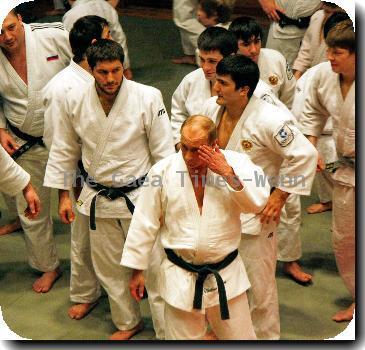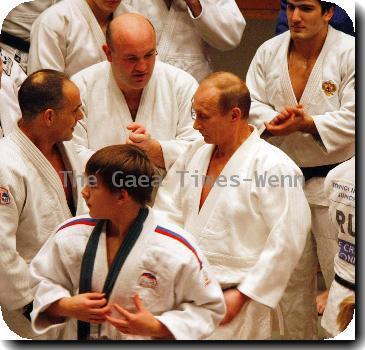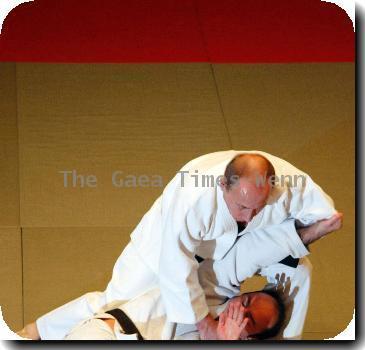Suspects in Russian spy ring had interests in finance and science, knack for networking
By Samantha Henry, APTuesday, June 29, 2010
Spy suspects had interests in science, finance
MONTCLAIR, N.J. — One hobnobbed with academics and entrepreneurs who shared his interest in cutting-edge science. Another spoke five languages, went to embassy parties and was fascinated by global politics. A third held herself out to be a venture capitalist and hit the networking circuit, looking for investment opportunities.
The 11 people arrested and accused of being members of a Russian spy ring operating under deep cover in America’s suburbs appear to have been part of a slow and patient plan by Moscow to cultivate contacts in the U.S. who could yield vital competitive information — not necessarily on weapons or U.S. strategic planning, but on finance, business and technology, intelligence experts say.
“This is a long-term investment by an intelligence service to lead those individuals there, give them general assignments and see what they can pick up,” said John Slattery, a deputy assistant director of counterintelligence at the FBI who retired in 2008 and is now an executive with BAE Systems Intelligence and Security.
“Although they aren’t trained intelligence professionals, they are available and on call for assignments such as: Can you go attend this meeting? Can you go attend this trade show? Can you contact this person? Could you maybe enroll in this university? And then elevate the access as they go.”
Ten members of the alleged ring were arrested across the Northeast and charged Monday with failing to register as foreign agents, a crime that is less serious than espionage and carries up to five years in prison. Some also face money laundering charges. An 11th suspect was arrested in Cyprus, accused of passing money to the spies over several years.
Prosecutors said several of the defendants were Russians living in the U.S. under assumed names and posing as Canadian or American citizens. It was unclear how and where they were recruited, but court papers said the operation went back as far as the 1990s. Exactly what sort of information the alleged agents provided to their Russian handlers — and how valuable it may have been — was not disclosed.
The FBI finally moved in to break up the ring because one of the suspects — apparently a woman who called herself Anna Chapman, who was bound for Moscow, according to court papers — was going to leave the country, the Justice Department said.
The arrests flabbergasted many of the defendants’ neighbors. In a case that seemed to have come straight out of a Cold War spy novel or a Hitchcock thriller, many of the defendants lived what seemed to be utterly ordinary suburban lives — saying goodbye to their kids at the bus stop, taking pride in their well-kept lawns and flower beds, making small talk with the neighbors, even holding Fourth of July parties.
In Montclair, N.J., neighbors of a woman who called herself Cynthia Murphy said that they detected an accent, and when they asked where she was from, she said Belgium. Chapman, a young redhead, posted a number of pictures of herself on social networking sites, including a photo of her at the Statue of Liberty and a seductive, pouty shot of her in a lacy baby-blue outfit.
The court papers allege that some of the ring’s members were husband and wife and that the spies used invisible ink, coded radio transmissions and encrypted data, and employed Hollywood methods such as swapping bags in passing at a train station.
“We’re from a generation where everyone was afraid of the Red Menace, of 007 and hiding under desks during drills — all of that stuff. There was real fear, so it’s shocking to see something like this,” said Alan Sokolow, a neighbor of Cynthia Murphy and her husband, Richard. “I can see it happening in the mid-1950’s, but now, in 2010, it comes across as more comical, with the low-tech stuff they said they were using.”
The arrests raised fears that Moscow has planted other couples in the U.S. Federal prosecutor Michael Farbiarz said the allegations are “the tip of the iceberg” of a conspiracy by Russia’s intelligence service, the SVR, to collect information inside this country.
The alleged deep-cover agents are known as “illegals” in the intelligence world because they take civilian jobs instead of operating inside Russian embassies and military missions.
Federal agents said in court papers that almost all members of the group had been under surveillance for some time.
One suspect, Vicky Pelaez, a reporter and editor for the Spanish-language newspaper El Diario/La Prensa, had been videotaped taking bags of money from a Russian official as early as 2000, the FBI said. Others had their phones tapped, their homes searched and their computer hard drives copied by FBI agents years ago.
All the suspects were allowed to go about their lives, though under close watch.
Donald Heathfield, who worked for a management consulting firm and lived in Cambridge, Mass. — home to Harvard and MIT — had ties to several organizations involved in forecasting emerging technologies. “He hung around the world of futurists,” said retired George Washington University professor William Halal.
The two were business partners in TechCast, a think tank that tries to predict the shape of tomorrow’s technologies, and had also been members of a board at the Lifeboat Foundation, a nonprofit organization that encourages scientific advancements. Prosecutors said that in 2004, Heathfield met with an employee of the U.S. government “with regard to nuclear weapons research.”
Another of those arrested, Mikkail Semenko, worked at Travel All Russia, a small travel agency in Arlington, Va., that is in the same building as a U.S. military recruitment center. Colleagues in the office described him as clumsy and quirky, but smart. They said he spoke five languages.
The agency’s marketing manager, Slava Shirokov, said he had known Semenko since they were students together at Amur State University in Russia. Shirokov said Semenko had majored in Chinese studies and spent several years in China after graduating. After moving to the U.S., he got two master’s degrees from Seton Hall University in 2008, one in diplomacy and international relations and one in Asian studies.
“He was always interested in languages, global politics and other cultures,” Shirokov said. “He liked to go to banquets to meet people. He did a lot of that in New York, he did a lot of this here. We always thought he is networking in order to land the jobs of his dreams. … He said, ‘My dream job would be something in international relations, an NGO or something like that.’”
A number of the suspects had interests in finance.
One couple, who went by the names Michael Zottoli and Patricia Mills, had taken an advanced finance course at the University of Washington when they were living in Seattle, according to their former instructor, Ufuk Ince. Cynthia Murphy earned a master’s degree in business administration from Columbia University this year.
Chapman lived close to the New York Stock Exchange and described herself in numerous Web postings as being on the hunt for investment opportunities in the U.S. and Russia.
Russian officials initially denounced the arrests as “Cold War-era spy stories” and accused elements of the U.S. government of trying to undermine the improving relationship between Moscow and Washington. But the White House and Prime Minister Vladimir Putin expressed confidence that the arrests would not damage ties between the two nations.
Bruce Riedel, a former CIA officer and a senior fellow at the Brookings Institution Saban Center, said it was a “classic KGB-style” operation, in which Russian intelligence officials plant moles and “hope that they will produce something years and maybe even decades later.”
“They’re trying to get someone into a position of influence, where someone becomes the friend of, let’s say, the president of a think tank who may become a Cabinet member in the next administration,” Riedel said. “And then you have someone who not only can ask that Cabinet member questions, but might be able to influence what they’re doing.”
Waldomar Mariscal, the 38-year-old son of Pelaez, scoffed at the allegations Tuesday outside Pelaez’s home in Yonkers, N.Y.
“This looks like an Alfred Hitchcock movie with all this stuff from the 1960s,” he said. “This is preposterous.”
Yost reported from Washington, Caruso from New York. Contributing to this report were Associated Press Writers Adam Goldman in New York, Jim Fitzgerald in Yonkers, N.Y., Lolita Baldor and Jessica Gresko in Washington, and Kathleen Miller in Arlington, Va.
Tags: Anna Chapman, District Of Columbia, Eastern Europe, Espionage, Europe, Montclair, Moscow, New Jersey, New York, North America, Political Organizations, Russia, Russian Spy, Think Tanks, United States, Vladimir Putin, White Plains



